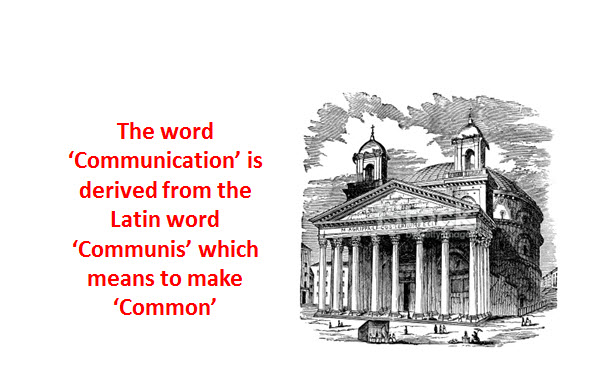So much of our daily conflicts have communication breakdown as their root cause. By improving our communication skills, our abilities to “make common”, we give ourselves a huge leg up, when it comes to working with others and effectively managing conflict.
Jennie’s story
Jennie is a home care service provider. Her job is to provide personal care services for seniors, living at home. She is employed by a home care service agency. Jennie represents a composite of people I know. I use home care as a context for illustrating the role and import of communications in our daily work. Home care is a context I know well; not to mention it’s a subject that as I get older, I take a growing interest in!
Here’s a day-in-the-life of Jennie…
You arrive at your home care service employer’s office this morning feeling crappy; a bad night’s sleep.
Your boss asks you to backfill for a colleague who is off sick, today. As if you’re not, you say to yourself! Nevertheless, you reluctantly oblige.
An hour later you pull in to Mr. Jones’ house. His caregiver daughter has been waiting for you. “You’re late”, she says, as she brushes by you on her way out the door (triggering one of your hot buttons!).
Mr. Jones, too, has been waiting for you.
You take him to see his doctor. His doctor prescribes something new. Mr. Jones seems confused by the prescription. You’re not sure what to do.
Later that afternoon, Mr. Jones’ case manager, from the local health authority, calls. She wants to know how Mr. Jones is doing… oh, and, yeah – she needs more information about Mr. Jones’ condition, and can you provide it? WTF, you say to yourself. I barely know Mr. Jones.
Just before you leave, Mr. Jones’ nurse arrives. She doesn’t say much to you. A “hello” and that’s it.
Back at the office, you are too tired to write much detail about the day. You hope your colleague will be back at work, and figure it out, tomorrow.
Five minutes after finally making it back to your own home, exhausted, your spouse shows up, looking tanned and refreshed from a day on the golf links. “What’s for dinner” he asks. You look around for something to throw.
What happened and why its’ important
At every step in the above story, communication breakdown takes place; e.g.,
- You felt crappy, yet, didn’t tell your boss that
- You wanted to connect with Mr. Jones’ daughter, yet, she brushed you off
- You know that you should truly care about Mr. Jones, yet, he appeared ticked off at you when you arrived, and you couldn’t let go of that perception
- You thought about questioning the doctor’s prescription, yet, felt it not your station to do so
- You know a bit about Mr. Jones, yet, shouldn’t the case worker be talking with the daughter or nurse or…
- You know paperwork is important, yet, sometimes you just don’t feel like doing it
- You love your husband, yet, at times, he’s clueless as to your needs
The impact of communication breakdown:
- Conflict escalates
- Damaged trust and relationships
- Missed opportunities; e.g., to advocate, collaborate
- Misdiagnosis; worse: medical error
- Lack of information
- Erroneous assumptions
- Poor connections/handoffs
- Poor decision-making
The bottom line is that communication breakdown is not a good thing. Personal care and patient care suffer. At what cost to society? Let’s just say the numbers are big.
Communications is the foundation
I shared a story which I/we hear about all too often. Although it’s a story that I’m familiar with, it may resonate differently for you. Yet, I suspect you can see, or translate, elements of the story in your own daily living.
To me, communication skills are the foundation of effective conflict management and collaboration, in our workplaces, and in all aspects of daily living.
‘Nuff said.


Speak Your Mind